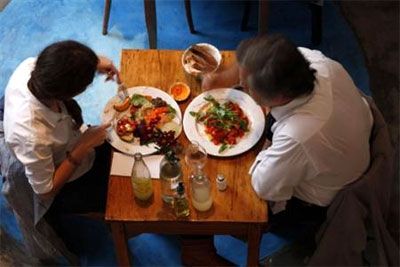The government on Friday approved new guidelines giving consumers the right to decide service charge they wish to voluntarily pay on a hotel or restaurant bill.

The guidelines, which have made service charge "totally voluntary and not mandatory", will be sent to states for necessary action, Food and Consumer Affairs Minister Ram Vilas Paswan said.
While the new norms provide relief to those dining out, the hotel industry is not likely to take it lying down as they feel being singled out.
The 'Guidelines on Fair Trade Practices Related to Charging of Service Charge from Consumers by Hotels and Restaurants' has been issued in public interest to protect consumers right, the government said, adding that mandatory levy of service charge amounts to unfair trade practice.
"The government has approved guidelines on service charge. As per the guidelines, service charge is totally voluntary and not mandatory now," Paswan tweeted.
"Hotels and restaurants should not decide how much service charge is to be paid by the customer and it should be left to the discretion of the customer," he added.
The guidelines are being sent to states for necessary action at their end, the minister said in another tweet.
"...the (food) bill presented to the customer may clearly display that the service charge is voluntary and the service charge column of the bill may be left blank for the customer to fill before making payment," the guidelines said.
In case of unfair and restrictive trade practices, customers are entitled to exercise their right to be heard and redressed under provisions of the Consumer Protection Act, 1986, and can approach the consumer dispute redressal commission or forum.
"If there is mandatory levy of service charge, customers can file a complaint in the consumer court," a senior consumer affairs ministry official said.
The current consumer protection law does not empower the ministry to go for hefty fines and stringent action against violations. However, the new Consumer Protection Bill under which an authority will be set up will have powers to take action, the official explained.
Last week, Paswan had said the ministry had prepared an advisory on the service charge issue and the same was sent to the PMO for approval.
A number of complaints from consumers have been received that hotels and restaurants were asking for 'service charge' in the range of 5-20 per cent, in lieu of tips, the ministry had said earlier.
Reacting to the guidelines, the Hotel and Restaurant Association of Western India said the service charge levying is a global practice and a legitimate tax.
"Service charge is a global practice and one that has been in force in India for more than half a century. The charge is neither hidden nor disguised. It is categorically and boldly mentioned in the menu," Hotel and Restaurant Association of Western India President Dilip Datwani said.
"A customer patronises a food outlet with the full knowledge that he or she will be levied a service charge. It is not just hospitality (sector), but many businesses levy such charges. We cannot understand why we are being singled out," he wondered.
"It is sad to see constant demands being made from the hospitality industry on one issue or the other. One day, it is reducing food portions and on another day, it is about terminating a legitimate charge."
The guidelines made it clear that a component of service is inherent in provision of food and beverages ordered by a customer and pricing of the product is expected to cover both goods and service components.
"Placing of an order by a customer amounts to his or her agreement to pay the prices displayed on the menu card along with the applicable taxes. Charges for anything other than the aforementioned without express consent of the customer would amount to unfair trade practices as defined under the Act," it added.
Tip or gratuity paid by customers is towards hospitality received by them beyond the basic minimum service already contracted between them and the hotel management, the new guidelines said.
"It is a separate transaction between the customer and the staff of the hotel or restaurant, which is entered into at the customer's discretion," the rules added.
Stating that customers can assess quality of service and decide whether or not to pay tip only after having the meal, the order said it is "not correct" if a hotel or restaurant considers that entry of a customer to its premises amounts to his or her implied consent to pay service charge.
Any restriction on the entry into a hotel based on this amounts to restrictive trade practice as defined under the act.
Justifying its move, the department of consumer affairs said it has come to its notice that some hotels and restaurants are charging tips and gratuities from customers without their consent in the name of service charge.
Some customers are paying tips to waiters, in addition to service charge, under the mistaken impression that it is part of taxes while in some cases, hotels and restaurants are restraining customers from entering the premises if they are not in prior agreement to pay the mandatory service charge.











 © 2025
© 2025